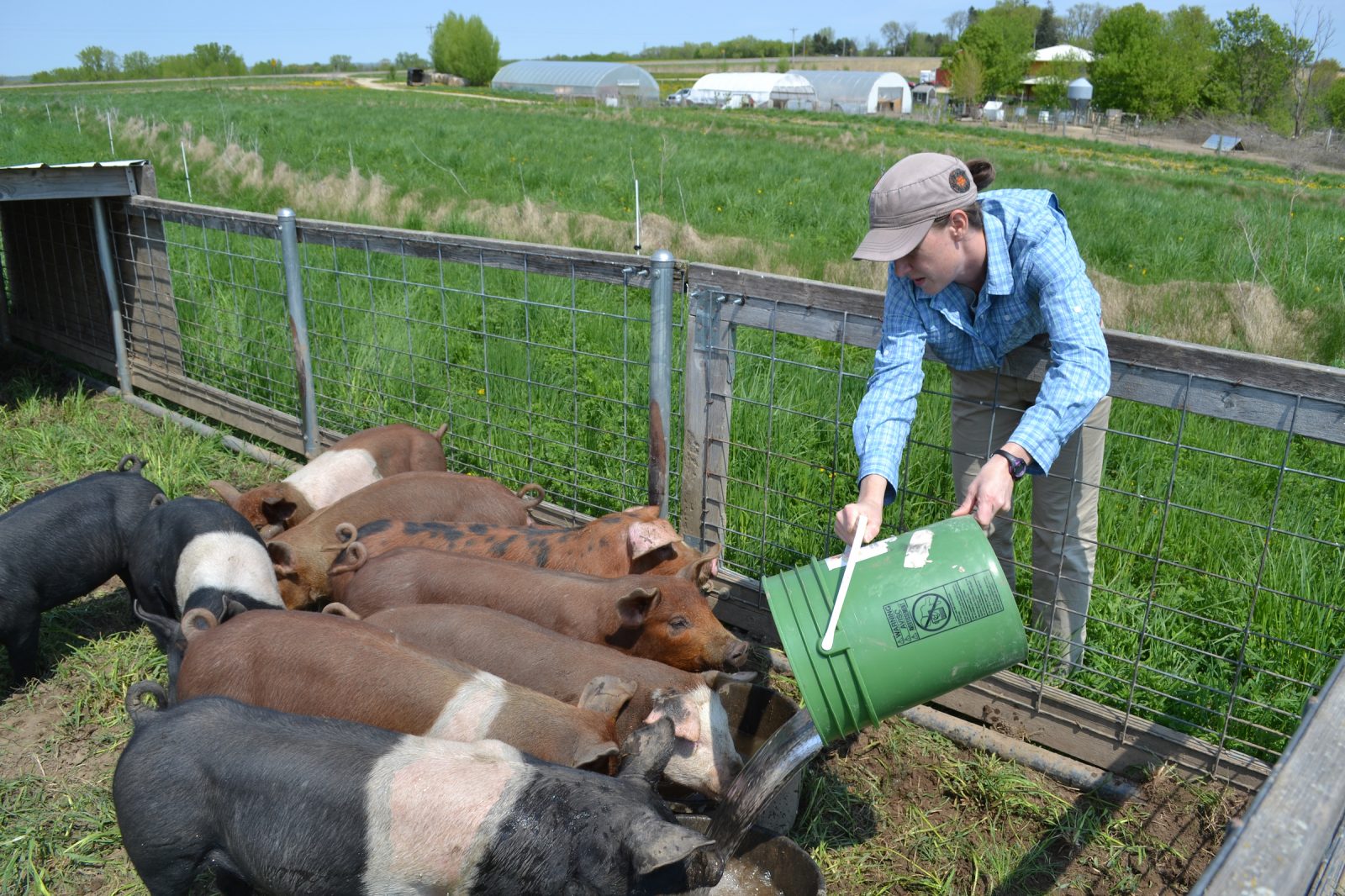The COVID-19 pandemic has exposed the fragility of global, concentrated supply chains. In addition, farmers adopting regenerative practices and growing food that nourishes people in Minnesota need markets to sell their production to. That’s why the Land Stewardship Project will be working during the 2022 session of the Minnesota Legislature to pass policies that help create a more resilient food and farm system. Here are three food-related areas LSP will be working on during the session:
Transition Planning
Just as farm owners face many challenges transitioning their operations to the next generation of farmers, so too do meat processors face significant obstacles in creating sustainable business transition plans when they reach retirement age. Often, a lack of holistic business transition planning leads to processors closing their doors when they reach retirement age or passing on their business to new owners who are not well prepared or informed about how to continue operating small processing facilities.
LSP is proposing a multi-faceted approach to business transition planning and transfer, including financial resources, incentives, and technical assistance. LSP feels the Minnesota Department of Agriculture should prioritize funding small meat processing projects that make necessary upgrades to existing facilities so that they can meet new inspection requirements, as well as projects that facilitate thoughtful business transition to new ownership and incentivize business planning.
Certification & Training
All meat and poultry processors under federal or state inspection are required to have Sanitation Standard Operating Procedures (SSOP) and a Hazard Analysis and Critical Control Points (HACCP) plan or plans in place. These measures help ensure that meat and poultry processors are producing safe products. However, there are limited HACCP training courses available in Minnesota to meet this requirement. LSP would like to see state funding to support HACCP training courses through local colleges, and funding for processors attending certification and training courses.
Workforce Shortages
Many meat processors cannot recruit and retain skilled workers to keep small plants running. In addition, when workers are available, plant managers often need to provide extensive training due to workers’ lack of previous experience in meat processing and meat cutting. The recent development of new meat processing courses and certification at two local Minnesota colleges is promising, but often students who would like to attend these colleges and become certified in meat processing face financial barriers to enrollment.
LSP would like to see state funding for tuition support for students interested in and committed to studying meat processing and pursuing a career in this sector. LSP would also like to see the creation of an apprenticeship navigator position to help connect meat processors to existing resources to facilitate apprenticeship opportunities.
LSP organizer Sarah Goldman can be contacted via e-mail or at 612-400-6341. More on LSP’s regional food systems work is at landstewardshipproject.org/regional-food-systems.
